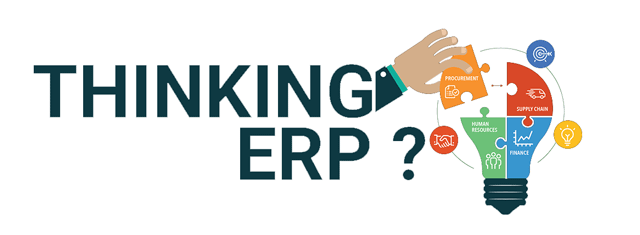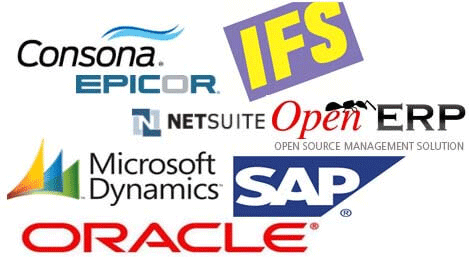Enterprise resource planning software, or ERP for short, is a software solution that has been around for a long time with the aim of supporting the management of a company. This software is not used for each individual but will help businesses in their daily activities, so the word "Enterprise" (business, company) has its name.
- 11 free open source applications for small businesses
- 12 useful iPad apps for businesses
- 5 golden principles to manage enterprise IT infrastructure
What is ERP?
ERP is a process used by companies to manage and integrate important parts of their businesses. Many ERP software applications help companies plan resources by integrating all the processes necessary to run a company into a single system. An ERP software system can integrate planning, purchasing, sales, finance, human resources, etc.
Learn about enterprise resource planning software
You can think of an enterprise resource planning system as a glue that binds different computer systems to a large organization. Without ERP applications, each part must have its own system to optimize its specific tasks. With ERP software, each department still has its own system but all of these systems are accessible from one application with the same interface.
ERP applications also allow different departments to communicate and share information with the rest of the company more easily. It collects information about the activities and status of other components so that users of that application can access this information and use it effectively.

ERP application can help businesses identify their company better by linking information on production, finance, distribution and human resources. Because it connects the different technologies that each part of the business uses, an ERP application can eliminate expensive and incompatible technology. This process often integrates premium accounts, inventory control systems, order monitoring systems and customer databases in one system.
ERP services have evolved over the years from traditional software models using physical servers to cloud-based software that provides remote, web-based access.
Note : A company may experience excess spending if not implementing ERP system carefully.
Note : A company may experience excess spending if not implementing ERP system carefully.
An ERP system may not always address inefficiencies in the enterprise. The company needs to rethink how it is organized or it will lead to incompatible technology.
ERP systems often fail to achieve goals because the company does not want to give up the old work processes, the old software works well before but not compatible with the software. It is important to prevent ERP projects from being split into many smaller projects, which can lead to excess costs.
ERP solution provider
Some familiar names lead the way in Oracle Corp.'s ERP software. The company initially provided a relational database integrated with ERP software developed by SAP before entering the wider enterprise market in the early 2000s. Microsoft has long been a leading company. In the industry, many customers use a variety of software applications from the company.

As cloud-based solutions have become popular in recent years, traditional ERP industry leaders have seen challenges from emerging people like Bizowie and WorkWise.





Post a Comment
Post a Comment